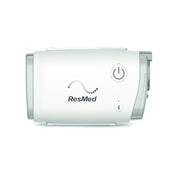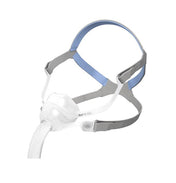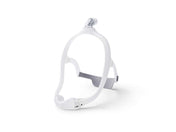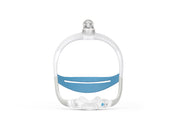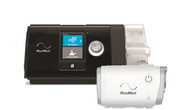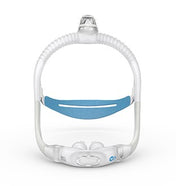Le 15 mars est la Journée mondiale du sommeil – une journée consacrée à la santé du sommeil et au rôle essentiel que joue un sommeil de qualité dans notre santé globale et notre qualité de vie.
On nous rappelle constamment l'importance de l'alimentation et de l'exercice physique pour une vie saine ; pourtant, quand votre médecin vous a-t-il interrogé pour la dernière fois sur votre sommeil ? Nous sommes convaincus que le sommeil , l'alimentation et l'exercice physique sont les trois piliers de la santé. Le sommeil a le pouvoir de régénérer et de prévenir des problèmes de santé tels que l'hypertension, les accidents cardiaques, la dépression, la prise de poids, les accidents de la route, et bien d'autres. Il est temps de prendre le sommeil au sérieux.
De combien d'heures de sommeil ai-je besoin ?
Nos besoins en sommeil varient légèrement d'une personne à l'autre, mais si vous avez plus de 18 ans, il est recommandé de dormir au moins 7 à 8 heures par nuit. Si vous êtes plus jeune, votre corps a besoin de plus de sommeil. En 2015, la National Sleep Foundation a réuni un groupe d'experts afin d'établir des recommandations consensuelles sur la durée de sommeil nécessaire à chaque âge. Voici leurs recommandations :
- Nouveau-nés (0-3 mois) : 14 à 17 heures/jour
- Nourrissons (4-11 mois) : 12 à 15 heures/jour
- Enfants de 1 à 2 ans : 11 à 14 heures par jour
- Enfants d'âge préscolaire (3-5 ans) : 10 à 13 heures par jour
- Enfants d'âge scolaire (6-13 ans) : 9 à 11 heures par jour
- Adolescents (14-17 ans) : 8 à 10 heures par jour
- Adultes (18-64 ans) : 7 à 9 heures par jour
- Adultes âgés (65 ans et plus) : 7 à 8 heures par jour
Déterminer précisément le nombre d'heures de sommeil dont son corps a besoin est un peu délicat, mais le savoir peut s'avérer très utile. Par exemple, pendant des années, ma femme et moi nous levions à tour de rôle pour promener le chien avant le petit-déjeuner et le travail. Ce n'est que lorsque nous avons découvert que son temps de sommeil optimal était de 8 heures contre 7,5 heures pour moi que nous avons modifié nos habitudes de vie, ce qui a considérablement amélioré notre bien-être à tous les deux ! Désormais, je m'occupe du matin, elle de la nuit, et nous bénéficions tous les deux d'un repos optimal sans faire de grasse matinée.
Le défi de l'entraînement au sommeil en deux semaines
Pour trouver votre heure de sommeil optimale, engagez-vous à vous coucher plus tôt que d'habitude pendant deux semaines. Deux semaines vous semblent trop longues ? Certes, ce n'est pas facile, mais comparez cela aux années de vie supplémentaires et de meilleure qualité qu'un sommeil réparateur vous apportera, et, finalement, deux semaines, c'est vraiment peu. Calculez 9 heures en arrière par rapport à l'heure à laquelle vous devez vous réveiller, et couchez-vous à cette heure-là tous les soirs pendant 14 jours. Par exemple, si vous devez vous lever à 7 h, couchez-vous à 22 h. Programmez votre réveil (par sécurité), mais l'objectif est de vous réveiller naturellement, sans réveil.
Les premiers jours, vous aurez probablement du mal à vous endormir. C'est normal ! Ne vous inquiétez pas. Le plus important est de se coucher à la même heure tous les soirs.
Au bout de quatre ou cinq jours, vous commencerez à remarquer qu'il devient plus facile de vous endormir. Pourquoi ? Votre horloge biologique s'habitue à l'heure du coucher. Au lieu de vous épuiser physiquement jusqu'à être contraint de dormir, puis de vous forcer à vous réveiller avec un réveil, vous vous endormez quand vous le décidez et vous dormez jusqu'à ce que votre corps soit régénéré et prêt à affronter la journée. Vous organisez votre vie autour de votre sommeil, au lieu de l'inverse.
Dès la deuxième semaine, vous vous réveillerez avant votre réveil, pleinement reposé et revigoré. C'est à ce moment-là que vous commencerez à comprendre vos besoins personnels en sommeil. Par exemple, vous remarquerez que vous vous couchez régulièrement à 22h et vous vous réveillez à 6h (il vous faut 8 heures de sommeil), ou à 5h30 (il vous faut 7h30). C'est une information précieuse !
Beaucoup de lecteurs se disent : « Huit heures de sommeil ?! La belle vie ! J'ai un travail, une vie sociale, des enfants, etc. » Certes, mais l'essentiel est que bien dormir ne vous fait pas perdre des heures, au contraire, cela vous les enrichit. Un bon sommeil vous rend plus efficace au travail, plus présent pour vos enfants et vous donne plus d'énergie à consacrer à vos relations. Votre santé physique et mentale s'en trouvera améliorée. J'irais même jusqu'à dire que le sommeil est ce qui se rapproche le plus d'un remède miracle, et c'est gratuit !
Prenez la résolution de prendre soin de votre sommeil ce printemps en relevant le défi du sommeil pendant deux semaines. Votre corps, votre esprit et vos relations vous en remercieront.


